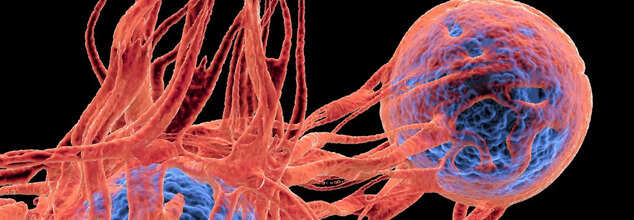
Credit: Canva
Can Music Help People With Depression?
Nobel Peace Prize Winner Malala Yousafzai recently recalled how she drew strength from Taylor Swift's Love Story during her days in Swat Valley, Pakistan. Like Malala, countless others have spoken about how music has healed them and made them stronger. In recent times, music therapy has gained popularity, which uses music and its elements—such as rhythm and tone—to enhance mental well-being and reduce stress. But does music therapy truly impact your mental health, or is it merely a pseudoscientific trend? Read to find out.
What Is Music Therapy?
Music therapy is a complementary sensory therapy that has been used by various cultures for thousands of years. It involves listening to, writing or playing music. The most common form of music therapy involves actively listening to music. Patients can wear headphones or listen through speakers. They may choose their music or listen to a prescribed playlist developed by a music therapist. From classical music to nature sounds and country to rock and roll, music can have distinct physical effects, including decreased anxiety and stress, improved mood, decreased heart rate and blood pressure, increased circulation, and decreased pain perception.
Can Music Reduce Depression?
Music therapy, when combined with traditional treatments like medication and psychotherapy, has been shown to improve depressive symptoms more effectively than standard treatments alone. It can reduce anxiety levels and enhance daily functioning in people with depression. Music engages multiple brain regions, including the limbic system, which processes emotions and memories, potentially explaining why it can evoke vivid recollections and improve cognition and quality of life, especially in individuals with dementia.
Research indicates that different types of music can affect the body in various ways. Fast tempos can be stimulating, while slow or meditative music promotes relaxation. Listening to music and singing can lower cortisol levels, a stress hormone, and increase dopamine, a neurotransmitter linked to pleasure and reward.
Music therapy’s interactive nature—where clients may play instruments or write lyrics with their therapist—facilitates self-expression and communal connection. Kenneth Aigen of NYU Steinhardt highlights the transformative experience of making music with others. Music therapy also serves as a therapeutic tool for critically ill patients, providing them with a sense of autonomy and reconnecting them with their humanity during difficult times, as noted by Kerry Devlin from Johns Hopkins Hospital.
ALSO READ: This Ayurvedic Gum Is Trending For Its Cooling Effects-Here's What You Should Know
A study published in the Cochrane Database of Systematic Reviews (CDSR) in 2017 indicated that music therapy provides short‐term beneficial effects for people with depression. "Music therapy added to treatment as usual (TAU) seems to improve depressive symptoms compared with TAU alone. Additionally, music therapy plus TAU is not associated with more or fewer adverse events than TAU alone. Music therapy also shows efficacy in decreasing anxiety levels and improving functioning of depressed individuals," researchers said in the study.
So it is right to say that next time you feel alone or depressed, switch on your music system and put in your favourite songs.
ALSO READ: Skincare Expert Says Begin Your Teenager's First Skincare Routine With This Habit To Stay Acne-Free

Credit: Canva
These 4 Signs Can Help You Identify Cavities-And What You Should Do
Cavities are one of the most common dental issues, yet they often go unnoticed until the problem worsens. I, myself, have faced this!
Cavities, commonly referred to as tooth decays, are caused by bacteria in plaque using sugars and starches. The bacteria in your mouth form a sticky film that causes plaque in teeth. Every time you eat or drink anything with sugar or starch, this bacteria in plaque breaks them down, producing acids. These acids eventually lead to enamel erosion. Over time, the enamel weakens and breaks down, forming a cavity or a hole in the tooth.
Recently, dentist and social media influencer Dr Lavina Kumar, highlighted four key signs that could indicate the presence of a cavity—and why you shouldn’t ignore them.
In the video, she explained that tooth sensitivity, especially when consuming cold drinks, could be an early warning sign. Persistent toothache, food frequently getting stuck between teeth, and the sensation of a hole in your tooth are also strong indicators that a cavity may be developing.
The NHS also warns that tooth decay can manifest as sharp pain when eating or drinking hot, cold, or sweet foods. Visible white, brown, or black spots on the tooth may also signal decay.
However, treatment is possible. Based on the severity, you dentist can offer you different options. Early-stage cavities can sometimes be reversed with fluoride treatments such as mouthwash or varnish. However, if decay progresses, a filling may be required. In severe cases, a root canal or even tooth extraction may be the only remaining solution.
Tooth Decay: Do’s and Don’ts
To avoid tooth decay and maintain strong teeth, consider the following tips:Do’s
- Brush Before Breakfast: UK dental surgeon Shaadi Manouchehri advises brushing before eating breakfast to remove the bacteria that builds up overnight. This practice shields your teeth from acidic food and drinks that can weaken enamel.
- Choose Healthy Snacks: Opt for raw vegetables, nuts, or fruits that are low in sugar and require chewing, which stimulates saliva production and naturally cleans the teeth.
- Use Xylitol Gum: Chewing gum with xylitol after meals can boost saliva flow and reduce the risk of cavities.
- Wait Before Brushing After Meals: If you prefer to brush after eating, wait at least 30 minutes to allow your enamel to re-mineralize and harden.
Don’ts
- Avoid Sugary Snacks: Fermentable carbohydrates, such as chips, crackers, and cereal, turn into sugars that fuel the growth of harmful bacteria in the mouth.
- Skip Brushing After Acidic Meals: Acidic foods and drinks can weaken your enamel. Brushing immediately after consumption can wear away the softened enamel, leading to cavities.
- Don’t Skip Hydration: Drink water after meals to help neutralize acids and wash away remaining food particles in your teeth.
Maintaining optimal dental health takes more than just brushing and flossing twice a day. Adding such healthy eating habits, timing your brushing routine, and using xylitol gum after meals, you can protect your teeth from decay and promote stronger enamel.

Credit: Canva
Not All Tumors Are Cancerous: Understanding Benign Tumors
All cancers are tumors, but not all tumors are cancers. Tumors can either be benign (non-cancerous) or malignant (cancerous). The first type, that is benign tumours do not spread to other parts of the body. They grow slowly and typically remain confined to one location. Although they are not cancerous, some benign tumors may cause health issues if they press on vital organs or nerves.
On the contrary, malignant tumors are cancerous growths that can invade nearby tissues and spread (metastasize) to other parts of the body. Common metastatic sites include the liver, lungs, and bones. For instance, pancreatic and colon cancer commonly spread to the liver, while breast cancer and melanoma can metastasize to the brain.
Here Are Key Differences Between Tumours And Cancers
Cancer is a disease, whereas tumors can be either benign or malignant. Cancer is always malignant and has the potential to spread, while some tumors are benign and pose minimal health risks.Cancer consists of malignant cells, whereas tumors are not always malignant. Benign tumors do not invade nearby tissues or spread to other body parts.
Cancer can be life-threatening, while tumors may not be. Malignant cancers can spread and cause severe complications, whereas benign tumors often remain localized.
Cancer spreads through metastasis, but tumors do not always do so. Malignant tumors can invade other organs, while benign tumors typically stay confined to one area.
What Causes Cancer?
Cancer results from a combination of genetic, environmental, and lifestyle factors. Genetic mutations can be inherited or occur due to external exposures such as tobacco smoke, ultraviolet radiation, and carcinogenic chemicals. Lifestyle factors like poor diet, lack of exercise, and excessive alcohol intake also increase the risk. Chronic infections from viruses like HPV and hepatitis B and C can further predispose individuals to certain cancers.How Cancer Spreads
Cancer spreads through metastasis, where malignant cells break away from the primary tumor, travel via blood or lymphatic vessels, and establish new tumors in distant organs. This process significantly impacts cancer prognosis and complicates treatment.
ALSO READ: Why Ayurveda Says Your Morning Tea Should Do More Than Just Wake You Up
Treatment Approaches: Tumor vs. Cancer
Treatment varies based on whether a tumor is benign or malignant. Benign tumors may only require monitoring or surgical removal if they cause symptoms. Cancer treatment, however, is more intensive, often involving surgery, chemotherapy, radiation therapy, immunotherapy, or targeted therapy. A multidisciplinary approach is typically adopted to ensure the best outcomes.
Importance of Early Awareness
Understanding the difference between tumors and cancer is crucial for informed health decisions. Early diagnosis and timely intervention can significantly improve treatment success rates. Whether benign or malignant, all abnormal growths should be evaluated by a medical professional to ensure appropriate care and management.
ALSO READ: From Anemia To Cancer: The Life-Threatening Illness No One Saw Coming

(Credit-Canva)
Don’t Itch The Dry Skin – Tips To Stop Scratching Atopic Dermatitis
While scratching the itch may be satisfying, it can also be a double-edged sword. You may feel a little better, but it can also lead to skin infections and pain. There are also certain conditions that may cause drier patches and itchy skin like Atopic Dermatitis. The National Institute of Arthritis and Musculoskeletal and Skin Disorder explains that Atopic dermatitis, often called eczema, is a common, long-lasting skin problem. It makes your skin dry, itchy, and sometimes cracked or leaky.
When one has Atopic Dermatitis, they feel constant itchiness and irritation, causing them discomfort and lowering their quality of life. This condition happens when your body's defense system overreacts, causing redness and inflammation. The strong urge to scratch can lead to more problems, like open sores and infections, making the itch even worse.
This constant discomfort can disrupt your daily life, affecting sleep, social activities, and your ability to focus. It's important to find ways to manage this itch to improve your overall well-being.
How Can You Stop This?
Doctors strongly advise against any kind of scratching the dry skin, even touching it continuously causes the skin irritation and increases the chances of some infection. So how does one avoid the overwhelming urge to scratch? Here are some ways you can do so.
Moisturizing for Skin Barrier Support
Dry skin makes itching worse. Atopic dermatitis damages your skin's ability to hold moisture. Using thick creams or ointments twice daily, especially after baths, helps fix this. Choose products without perfumes. Regular moisturizing lessens flare-ups.
Cold Compresses for Immediate Relief
Putting a cold, wet cloth on itchy spots can calm the burning and itching fast. Wet a towel with cold water, squeeze it, and place it on the irritated area. After using the cold compress, apply moisturizer to keep skin hydrated. This a home remedy suggested by the American Academy of Dermatology Association.
Topical Anesthetics for Numbing Sensation
Applying numbing creams or gels daily can reduce the feeling of itch. You can get these creams over the counter or with a doctor's prescription. These medicines help manage itching and other eczema symptoms, making you more comfortable.
Habit Reversal Techniques for Behavioral Modification
A 2024 study published in the Cureus showed that this therapy helps break the cycle of itching and scratching. You'll learn ways to distract yourself from the itch and practice being more aware of your habits. When used with other treatments, this can greatly reduce how much you scratch.
Stress Management for Symptom Control
Stress can make eczema worse. Getting enough sleep, trying meditation, doing relaxing activities, and limiting news or social media can lower stress. This helps control eczema symptoms. Aim for seven hours of sleep and find relaxing hobbies.
Phototherapy for Nerve Ending Modulation
This treatment uses special light to target the nerves that cause itching. A 2021 study published in the Clinical, Cosmetic and Investigational Dermatology found that many people find their itch gets better after several weeks of this light therapy. The light helps calm the nerves, reducing the urge to scratch and improving skin comfort.
Laundry Product Adjustments for Skin Sensitivity
Using laundry products made for sensitive skin can stop irritation. Avoid scented fabric softeners and dryer sheets. Cut tags off clothes and wash new clothes before wearing them. This helps prevent chemicals from triggering eczema flare-ups.
Topical Oatmeal for Soothing Properties
Putting oatmeal on your skin can ease itching, remove dead skin, and reduce dryness. The National Eczema Association says one must use moisturizers with oatmeal or add oatmeal to your bath. You can also make a paste and apply it directly to itchy areas to soothe and protect your skin.
© 2024 Bennett, Coleman & Company Limited

